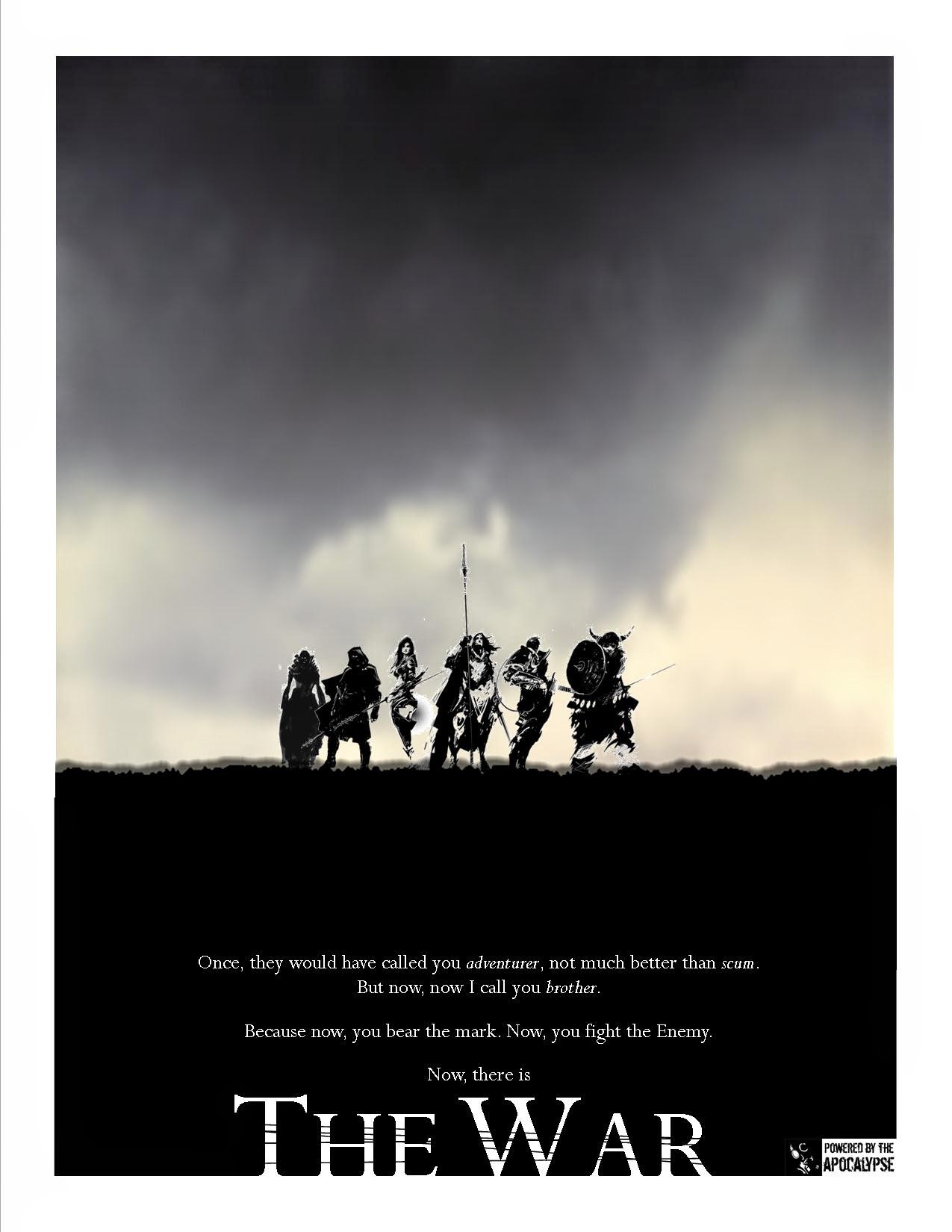In which I advance a heretical opinion
In which I advance a heretical opinion
As the GM, I always roll damage for monsters and other threats. I don’t have the players do it, and I actively think asking the players to roll damage is a bad rule. The only real reason to have players roll damage is so that you can say the GM never touches the dice, and that’s a pretty weak reason.
I have two main reasons for this opinion. First, rolling damage as the GM takes much less time asking the players to do so. Second, rolling damage for the world/monsters falls more clearly within my responsibilities than in that of the non-GM players.
Rolling Damage as the GM is Faster
Take this exchange:
GM: The gnoll smashes you with it’s massive flail. Take the best of 2d10+2 damage, forceful.
Player: Best of 2d10? So I roll 2d10 and take the better die?
GM: Yup.
Player (rolls): Ugh. 7.
GM: Did you add +2?
Player: Oh, no. 9, then.
GM: OK, so it smashes you for 9 damage and the force of the blow sends you flying. You hit the ground face first, and are just coming to your senses as the gnoll comes at you again, swing it’s flail to smash you in the back of the head. What do you do?
vs.
GM: The gnoll smashes you with it’s massive flail. Take… (rolls) 9 damage. The force of the blow sends you flying. You hit the ground face first, and are just coming to your senses as the gnoll comes at you again, swing it’s flail to smash you in the back of the head. What do you do?
Yeah, players get better at this with time. But the fact is you need to communicate the roll to the players, they need to find the dice and roll them, communicate the damage back, and then you need to work the damage into your narrative. That’s always going to going to take longer than you just looking at your notes, rolling, and describing.
It’s More Clearly the GM’s Responsibility
Despite the principles of leaving blanks, asking qustions, being fans of the players, and leading/ending with the fiction, DW is still a pretty traditional game in terms of narrative responsibilities. The players portray their characters, make rolls for their characters, track their character’s HP and other resources, and answer questions about things their characters know or have done.
The GM describes the world, describes what the players see/hear/feel, portrays any NPCs and monsters. It’s the GMs job (part of their agenda) to fill the characters’ lives with adventure, and they do so by making moves. The GM is the primary author of adversity in the game. As the GM, I might disclaim some of that responsibility or authority (“So, Ovid, just how did you screw up this spell? What’s that look like?”) but it’s my responsibility and authority to disclaim.
Except, as written, for rolling damage. Even though the players generally only portray and manage their characters and the resources of their characters, the game asks them to roll monster/threat damage. It’s the one spot in the game where they take real-world action on behalf of the adversity of the world.
Now, you could argue that the players are rolling to see how well their characters dodge/roll with blow/etc. But the “b[2dX]” and “w[2dX]” annotations bely that; the best roll means the highest and the worst roll means the lowest. So that’s clearly best and worst from the monster’s point of view.
Think about every time you’ve introduced a new player (at least one with traditional RPG experience) to DW. Didn’t you have to explain it to them the first time you had them roll damage for the enemy? At least with a statement of “Yeah, in this game the GM never touches the dice.” And they might not have noticed you weren’t rolling for the baddies up until that point. But the players rolling for the bad guys feels weird. That’s why it requires an explanation.
Hell, I’ve even had a player look at me when I told him to roll damage for the orcs and say “No, I’m not going to do that.” He wasn’t afraid (like the book suggests). He just didn’t think it was his job. And in my opinion, he was right.
OK, What’s Your Point?
Mostly: I don’t like the rule. I don’t play that way. And I felt like sharing.
At the start of each session, I grab two of each die and I roll damage for my monsters and NPCs and environment stuff. I roll the dice openly and in plain view, and I’ll explain what I’m rolling if anyone asks or is confused.
But also: I’m curious if anyone else does it my way. And I’m curious if anyone’s tried it my way and gone back to having players roll, and if so, why?
(Adrian Brooks)

